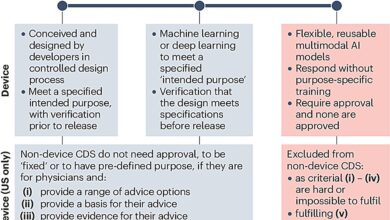Systematic family involvement is important in the treatment of patients with psychotic disorders, says study

Researchers at the Center for Medical Ethics have studied the significance of systematic family involvement for patients with psychotic disorders.
“Systematic family involvement, combined with medical treatment and individual therapy, is recommended in national guidelines for assessment, treatment, and follow-up of persons with psychotic disorders,” researcher Kristiane Myckland Hansson says. She is responsible for the study, together with Professor Reidar Pedersen and colleagues from the Center for Medical ethics (CME) at the University of Oslo.
“In the study we looked at how patients with psychotic disorders experienced systematic family involvement, and what significance this involvement had to them,” Myckland Hansson says.
Previous research shows that systematic family involvement has great effect in the treatment of people with psychotic disorders. At the same time, there have been few qualitative studies of the patients’ own experiences with this type of treatment.
In the study, the CME-researchers interviewed 13 persons with psychotic disorders who had participated in basic family involvement or family psychoeducation (FPE). FPE is an evidence-based treatment where patients and relatives gain knowledge about the disease and its treatment, learn how to communicate better and contribute to the treatment, receive emotional support, and get the opportunity to find joint solutions to various challenges. The findings are published in the journal Frontiers in Psychiatry.
“The patients we interviewed consistently told of positive experiences with systematic family involvement, and several pointed out that they wished they could have involved their families earlier in the course of the illness,” Myckland Hansson says. “Cooperation with the relatives led to increased knowledge and common understanding within the family. The family members got a better understanding of psychotic disorders, and of the patients’ situation and challenges. At the same time, the patients gained increased understanding of the relatives’ experiences and role.
“The increased knowledge, shared experiences and common understanding led to better communication, decreased stress levels, and a more caring family situation. The patients felt that they handled their illnesses and their life situations better, and that their family members could contribute to a greater extent with practical and emotional support. Several of the patients we interviewed believed that systematic family involvement helped to prevent relapse this way.”
The study shows how the clinicians who led the systematic family involvement played a crucial role in facilitating communication and cooperation between the patients and their relatives.
The clinician was an important source of information and knowledge about the patients’ disorder, treatment, and situation.
“It was important for both the patients and their relatives that health care personnel created safe spaces where they could share their experiences,” Myckland Hansson says.
Introducing systematic family involvement requires that clinicians have received training in how they best can introduce this as part of the treatment.
Several of the patients believed that systematic family involvement should be offered early in the treatment course, so that the next-of-kin could contribute to the treatment and gain understanding of the situation from the beginning.
“In particular, it was important to establish systematic family involvement for younger patients early in the course of their illness, to prevent challenges later,” Myckland Hansson says.
Some of the patients said that the time before, and the first phase of, the systematic family involvement could be challenging.
“Some felt vulnerable because they lacked sufficient information about what the treatment entailed and what information would be shared about them. Others did not want to be a burden to their families. However, these assumptions were disproven when they started the systematic family involvement, learned that they controlled what information was shared about them, and saw how important the cooperation was for their families,” Myckland Hansson says.
Psychotic disorders can vary in severity among the patients. There was thus a need for the systematic family involvement to be adapted to the patients’ individual needs.
The study is part of the research- and improvement project “Family involvement during severe mental health problems.” The main aim of the project is to improve cooperation between the next of kin, the patient, and the health care system, and thus improve the psychosocial health of patients and their families, as well as the quality of the services.
The study was carried out from 2017 to 2023 and included 15 treatment units.
“This part of the study gives us in-depth insight into possible factors and processes that lead to positive effects gained by systematic family involvement—and supports research that shows that systematic family involvement is significant for patients, next-of-kin and for the health care services. Systematic family involvement should be an integral part of the treatment offered to all newly affected patients with psychotic disorders,” Myckland Hansson concludes.
More information:
Kristiane M. Hansson et al, “The most important thing is that those closest to you, understand you”: a nested qualitative study of persons with psychotic disorders’ experiences with family involvement, Frontiers in Psychiatry (2023). DOI: 10.3389/fpsyt.2023.1138394
University of Oslo
Citation:
Systematic family involvement is important in the treatment of patients with psychotic disorders, says study (2023, June 2)
retrieved 2 June 2023
from https://medicalxpress.com/news/2023-06-systematic-family-involvement-important-treatment.html
This document is subject to copyright. Apart from any fair dealing for the purpose of private study or research, no
part may be reproduced without the written permission. The content is provided for information purposes only.
Get Best News and Web Services here







